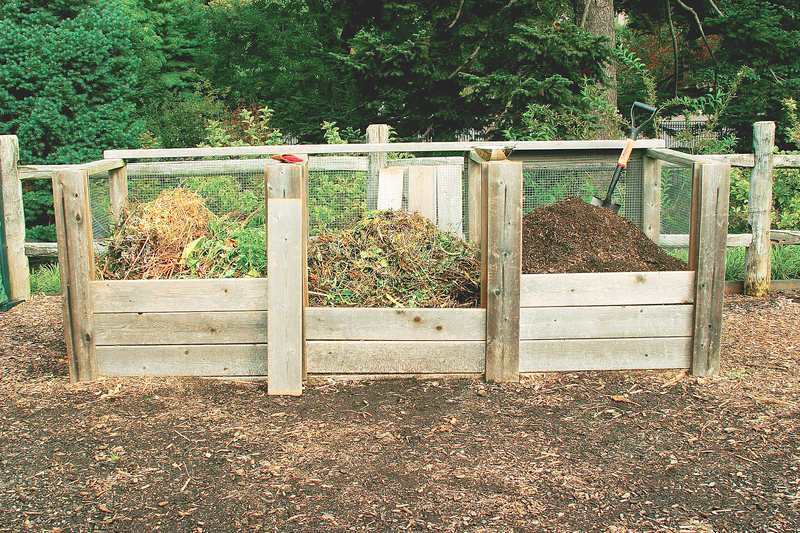
Starting Your Own Composting System
Composting is something that you can do to benefit your garden and lawn care. It is free to do, easy to make, and is good for the environment! The United States Environmental Protection Agency (EPA) defines compost as “organic material that can be added to soil to help plants grow”. Starting your own composting pile can help reduce your food waste. More than 30% of what Americans throw away is food scraps and yard waste, two things that can be reused for composting instead!
The EPA lists multiple benefits of composting. First, it enriches your soil by helping to retain moisture and suppress plant diseases and pests. Second, it reduces the need for added chemical fertilizers. Third, composting encourages the production of beneficial bacteria and fungi that break down organic matter. This creates “humus”, which is a rich nutrient-filled material that benefits your plants. The last benefit that the EPA lists is that composting reduces methane emissions from landfills and lowers your carbon footprint.
The basics you need to start composting are browns, greens, and water. Browns are materials such as dead leaves, branches, twigs, coffee filters, and egg shells. Browns provide the pile with carbon-rich matter. The bulkiness of these materials will allow oxygen to penetrate and nourish the organisms that reside in the compost pile. The secret to a healthy compost pile is the carbon to nitrogen ratio that you provide. The nitrogen part of the pile comes from the “greens” you add. Greens include materials such as grass clippings, vegetable waste, fruit scraps, and green leaves. The nitrogen ingredients for the pile, which are protein-rich matter, provide the pile with raw materials for making enzymes. A good rule of thumb for the bin or pile is to use one-third green material and two-thirds brown material. You should alternate your layers for best results. If your pile starts to have a foul odor, try adding more carbon (brown) material. Lastly, you will need to add water for moisture to help break down the organic matter. A general rule for adding water would be to add water every three to seven days, but this is really dependent on the conditions that your compost pile faces.
At home, you can start your compost pile outdoors or you can compost indoors by using a special type of bin! To start a compost pile or bin outdoors, you want to select a shady, dry spot that is near a water source. Next, you want to add your brown and green material and ensure that large pieces are chopped or shredded. Moisten dry materials as they are added. After you have created the pile of material, mix grass clippings or other green waste into the pile and ensure that fruit or vegetable waste is under 10 inches of compost material. If you want, you can add a tarp on top to keep the material moist. When the bottom is dark and rich in color, your compost is ready! In the warmest months, this could take two months at the earliest and in the cold months it may take six months or more.
If you want to compost indoors, you can compost using a special type of bin bought at a local hardware store or you can make one yourself! Indoors, your compost should be ready in two to five weeks if managed properly. The EPA states, “A properly managed compost bin will not attract pests or rodents and will not smell bad.” Remember to stir or rotate your compost roughly every seven to ten days. This will help with air flow for the pile.
One last piece of advice for your compost pile is to know what you can and cannot add to your pile. A few things to remember not to add are meat or fish bones and scraps, dairy products, yard trimmings treated with chemical pesticides, and pet wastes. If in doubt, research before you add. Once you “get the hang” of composting, it can be a fun addition to your routine!